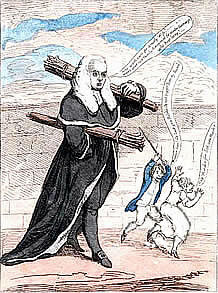Anthony Hopkins, the Best Actor winner at this year’s Oscars, is at the frightening summit of his powers in “The Father,” Anthony Lane writes.
Anthony Hopkins Rules the Screen in “The Father”
Florian Zeller’s adaptation of his play about old age shows Hopkins at the
Taiwan on Tuesday reported its first case of local coronavirus transmission in eight months, creating some anxiety on the island, which has so far avoided lockdowns and had only a handful of Covid-19 deaths.
#Feb. 3 (UPI) -- The United States will evacuate more American citizens from China's Hubei province that has been under lockdown amid a deadly outbreak of a mysterious new virus, U.S. Security of State Mike Pompeo said Monday.
"We have a handful of more flights that will be heading to China to bring Americans back home from Hubei province," he told reporters in Uzbekistan while on a multi-country trip until Tuesday. "The exact timing of those we're still coordinating with the Chinese government, but we anticipate that it will happen in the next handful of days and we will return those American citizens."
- The Good, the Bad, and the Weird gets a fistful of Asian Film Award nominations
Strength in Internet stocks, along with a handful of upgrades on some wireless phone companies, brought a modicum of relief to the tech sector Tuesday following the Nasdaq's recent pummeling.
The noun fistful has one meaning:
Meaning #1: the quantity that can be held in the hand
Synonym: handful
rule of thumb
a practical and approximate way of doing or measuring something:
A good rule of thumb is that a portion of rice is two and a half handfuls.
Alzheimer’s Beginnings
Some forgetfulness is normal. Distraction, stress, fatigue and medications can contribute. A joking rule of thumb about Alzheimer’s is actually close to the truth: it’s O.K. to forget where you put your car keys, as long as you remember what a key is for. But worsening forgetfulness is a cause for concern.
Rule of thumb
MeaningA means of estimation made according to a rough and ready practical rule, not based on science or exact measurement.
Origin
 The 'rule of thumb' has been said to derive from the belief that English law allowed a man to beat his wife with a stick so long as it is was no thicker than his thumb. In 1782, Judge Sir Francis Buller is reported as having made this legal ruling and in the following year James Gillray published a satirical cartoon attacking Buller and caricaturing him as 'Judge Thumb'. The cartoon shows a man beating a fleeing woman and Buller carrying two bundles of sticks. The caption reads "thumbsticks - for family correction: warranted lawful!"
The 'rule of thumb' has been said to derive from the belief that English law allowed a man to beat his wife with a stick so long as it is was no thicker than his thumb. In 1782, Judge Sir Francis Buller is reported as having made this legal ruling and in the following year James Gillray published a satirical cartoon attacking Buller and caricaturing him as 'Judge Thumb'. The cartoon shows a man beating a fleeing woman and Buller carrying two bundles of sticks. The caption reads "thumbsticks - for family correction: warranted lawful!"It seems that Buller was hard done by. He was notoriously harsh in his punishments and had a reputation for arrogance, but there's no evidence that he ever made the ruling that he is infamous for. Edward Foss, in his authoritative work The Judges of England, 1870, wrote that, despite a searching investigation, "no substantial evidence has been found that he ever expressed so ungallant an opinion".
It's certainly the case that, although British common law once held that it was legal for a man to chastise his wife in moderation (whatever that meant), the 'rule of thumb' has never been the law in England.
Even if people mistakenly supposed the law to exist, there's no reason to believe that anyone ever called it the 'rule of thumb'. Despite the phrase being in common use since the 17th century and appearing many thousands of times in print, there are no printed records that associate it with domestic violence until the 1970s, when the notion was castigated by feminists. The responses that circulated then, which assumed the wife-beating law to be true, may have been influenced by Gillray's cartoon or were possibly a reaction to The Rolling Stones' song 'Under My Thumb', which was recorded in 1966.
The phrase itself has been in circulation since the 1600s. In 1692, it appeared in print in Sir William Hope's training manual for aspiring swordsmen, The Compleat Fencing-master:
"What he doth, he doth by rule of Thumb, and not by Art."The origin of the phrase remains unknown. It is likely that it refers to one of the numerous ways that thumbs have been used to estimate things - judging the alignment or distance of an object by holding the thumb in one's eye-line, the temperature of brews of beer, measurement of an inch from the joint to the nail to the tip, or across the thumb, etc. The phrase joins the whole nine yards as one that probably derives from some form of measurement but which is unlikely ever to be definitively pinned down.
The earliest such 'measurement' use that I can find referred to in print is in a journal of amusing tales with the comprehensive title of Witt's Recreations - Augmented with Ingenious Conceites for the Wittie and Merrie Medicines for the Melancholic. It was published in 1640 and contains this rhyme:
If Hercules tall stature might be guess'dThe 'rule of leg' never caught on.
But by his thumb, the index of the rest,
In due proportion, the best rule that I
Would chuse, to measure Venus beauty by,
Should be her leg and foot:
The Phrase A Week newsletter goes to 85,000 subscribers (66,500 by e-mail, 18,500 by RSS feed).
Please help support this newsletter.

沒有留言:
張貼留言